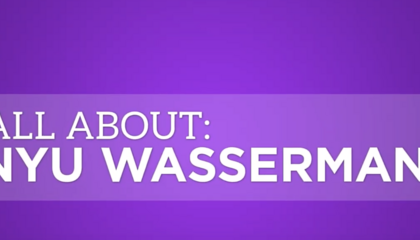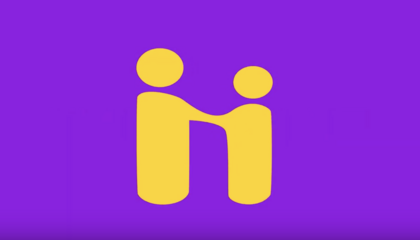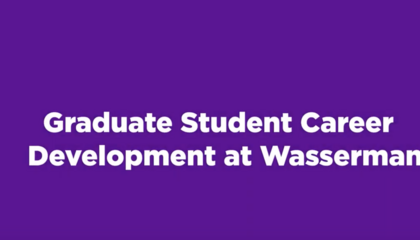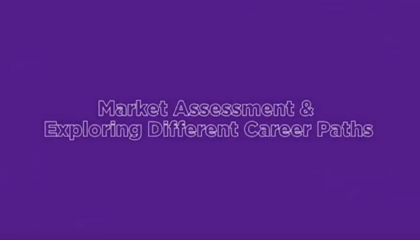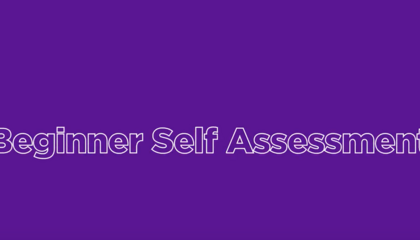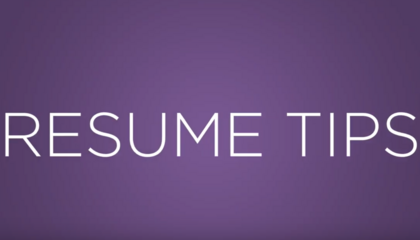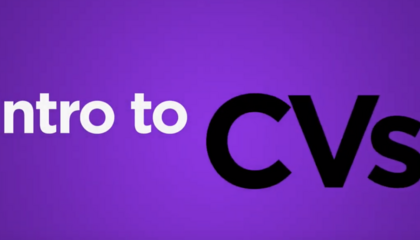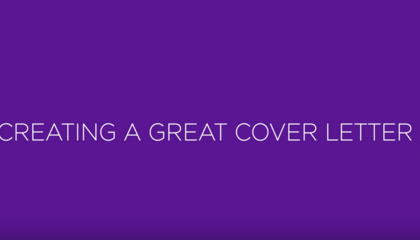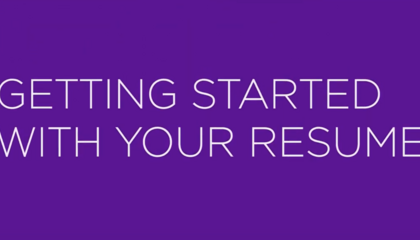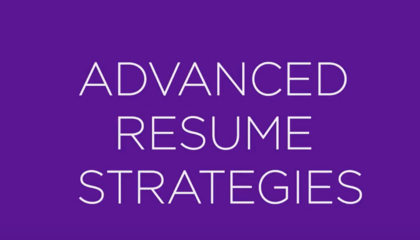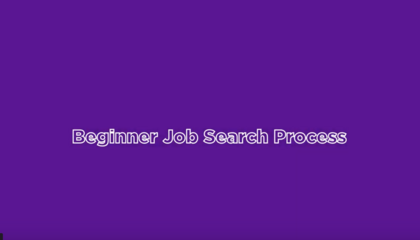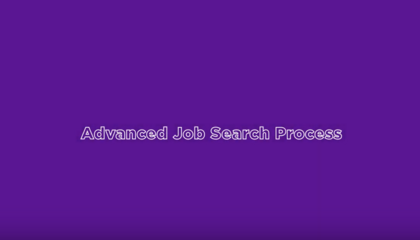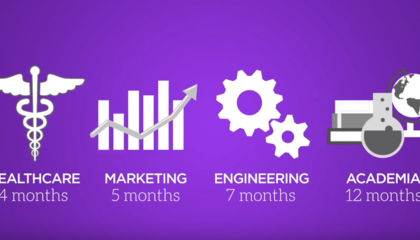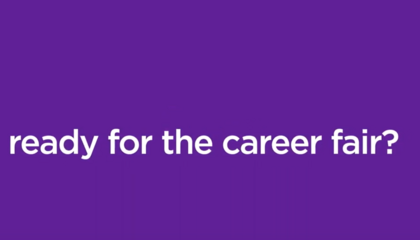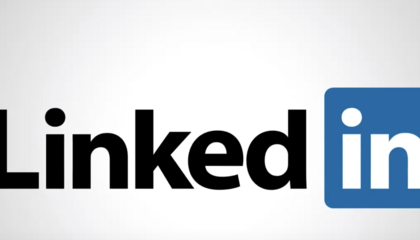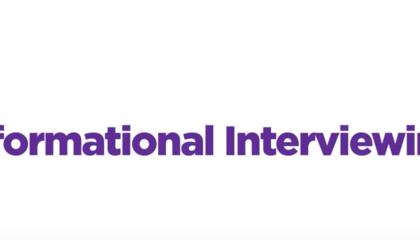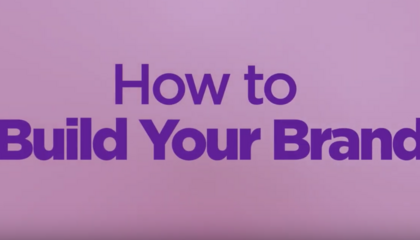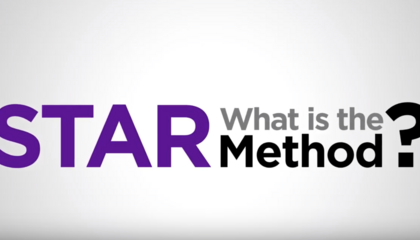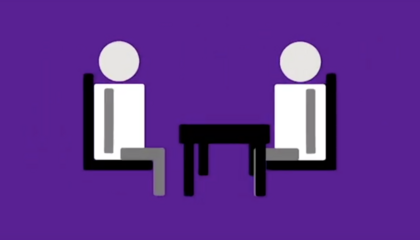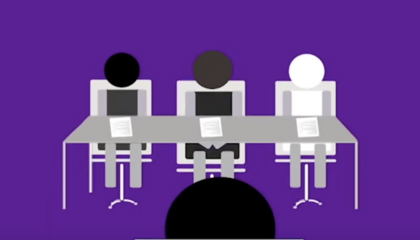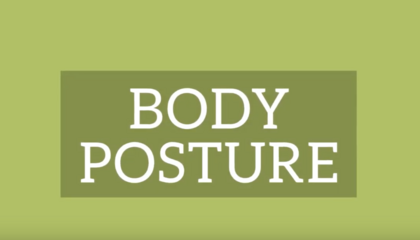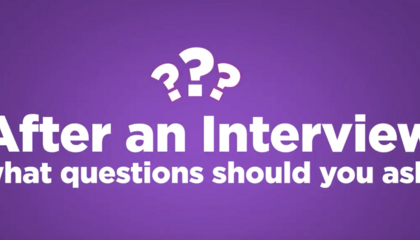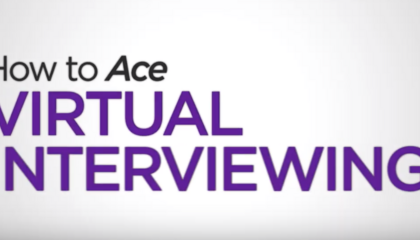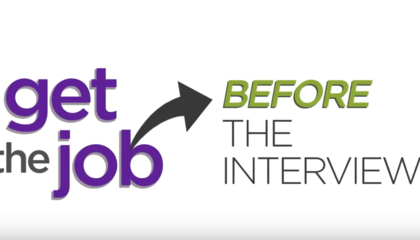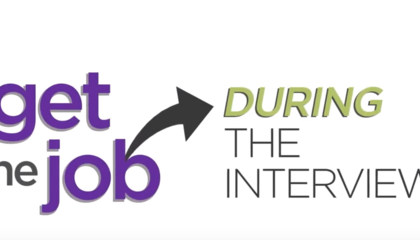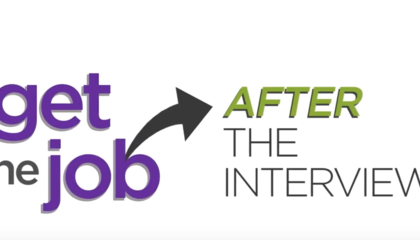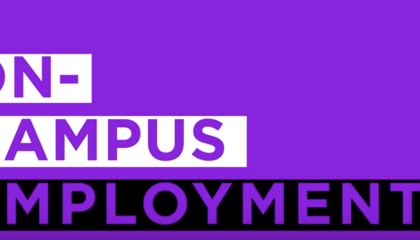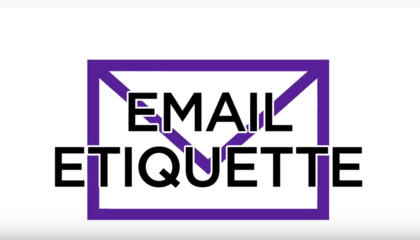
NYU GPH offers career-focused events and support to prepare you for internships, part-time and full-time employment.
Take advantage of career services specifically designed for public health students early in your academic career. Join us for workshops, industry talks, career fairs and more!
Important Note: Internship and job opportunities are regularly announced by email, so be always on the lookout.
For Employers & Recruiters
The Office of Student & Alumni Affairs at the NYU School of Global Public Health is here to help your organization find high-quality job candidates.
To help you identify talent that meets your hiring objectives, please explore our Employer Portal or contact us at gph.careerservices@nyu.edu. The Employer portal allows you to access opportunities for recruiting graduates and engaging with the NYU School of Global Public Health community at career-related events.
Quick Links
- Public Health Post //
- Business Cards //
- Wasserman Center //
- Handshake //
- Career Coaching //
- Internship Grant //
- Career Development Process //
- Career Resources //
- International Students //
- On-Campus Employment //
- Career Tools //
- Career Tips & Etiquette //
- Leadership Initiative //
- Global Awards //
- Leslie E-Lab //
- Research Institutes //
- Dissertation Writing Program //
Career Development at NYU GPH
The GPH Office of Student & Alumni Affairs produces a weekly general email newsletter, titled The Public Health Post, to share full-time, part-time, internship, fellowship and networking opportunities with current undergraduate and graduate students. See here an example of The Public Health Post.
The Public Health Post Newsletter
Important Note: If you are a graduate or undergraduate current student, you are automatically subscribed to our general email newsletter. If you do not receive our newsletter, just email us at gph.studentaffairs@nyu.edu.
Career Events
In partnership with the NYU Wasserman Center for Career Development, the GPH Office of Student & Alumni Affairs hosts every year several career events:
- GPH Career Week | a series of workshops, panels, networking opportunities and special events designed to heighten the awareness of a variety of public health career paths | Early Fall
- Public Health Research Expo | Early Fall
- Public Health Career Expo | Early Spring
- Career Fair Preparation
- On-Campus Employer Information Sessions
- Recruitment Days with Employers
- Career Preparation Workshops | Interviewing, Resume & Cover Letter, Networking
- Career Panels | Public Health Careers in the For-Profit Sector, Global Public Health Career Expo, Consulting Case Workshop with Prescient Healthcare Group, Public Health Careers in the Government & Non-Profit Sector, Public Health Careers in Pharma, Public Health Careers in Health Consulting, Public Health Career in Research, Alumni Panels, Doctoral Students Panels, Applying for Medical School as a Master's student
Check here GPH employment statistics and representative positions.
GPH Resources
GPH students find internships and full-time employment through the following resources.
- GPH CareerHub Resources | Browse employer profiles by public health sector (Government, Nonprofit, Private, Internships & Fellowships, Advocacy, Industry Associations, and Public Health Job Boards)
- Weekly Career Newsletter GPH Public Health Post
- GPH Faculty
- NYU Handshake Portal (see below)
- NYU GPH Centers, Labs & Initiatives
- GPH Research/Career Fairs
- GPH Career Panels & Workshops
- Networking within the GPH Community (Faculty & Staff, Alumni, Peers/Classmates)
- Networking with Guest Lecturers at GPH
- Networking in the NYU community
- NYU GPH Alumni
- GPH Career Podcasts | Listen to our career podcasts (EP68 Exploring Career Paths in Public Health, EP48 Live from the 2019 Public Health Career Expo - Part 1, EP49 Live from the 2019 Public Health Career Expo - Part 2).
Traditional Job Boards
Some of the best job sites are traditional job boards. Others allow you to search through many job boards, company career sites, associations, and other sources of job postings.
General job search sites are:
Buzzfile | CareerBuilder | Daybook | Dice | Glassdoor | GoogleJobs | Idealist | Indeed | Job.com | JuJu | Linkedin | LinkUp | Monster | SimplyHired | Snag | US.jobs | USAjobs | Vault | ZipRecruiter
Non-NYU Networks
- Current employers
- Past employers/Mentors
- Undergraduate school network
- Other connections
GPH Student Business Cards
Every GPH student is encouraged to take advantage of this opportunity.
Business cards are a valuable tool, allowing students to brand themselves as part of the NYU GPH community and can be used in a variety of academic and professional settings. Business cards also provide students with the ability to network efficiently by ensuring that personal contact information is readily available.
Download the NYU GPH Business Cards Form now!
Few tips:
- Your business card should have the name that you use most frequently and matches the way you represent yourself in other mediums (LinkedIn, Resume, etc.).
- In order to maintain consistency across all GPH students, all email addresses should be in the format YourNetID@nyu.edu.
Take the completed form to:
- NYU Reprographics at 547 LaGuardia Place, NY 10012.
- Schedule: Monday - Friday from 8:30 AM to 5:30 PM (excluding academic and national holidays)
- Phone: 212-998-1050
Download the NYU GPH Business Cards Form below.
Resources in one click: GPH Business Card Form
NYU Wasserman Center for Career Development
The GPH Office of Student & Alumni Affairs partners with the NYU Wasserman Center for Career Development to offer a variety of services that help you advance your career whether you are looking for a campus job or your first position as a graduate. The mission of the Wasserman Center for Career Development is to provide personalized career services that empower NYU students at every stage of their career development and lead to fulfilling careers that allow them to make a difference in their chosen fields.
Handshake Career Platform
Handshake is the Wasserman Center's career development platform for jobs, internships, events, and more! Students can build their career by connecting with relevant opportunities based on their profile, interests and search activity. Easily apply for positions, explore companies and connections and sign up for coaching appointments, career fairs and workshops all in one place!
- Log in here to access Handshake
- To learn how to use Handshake visit this page
- Use Handshake to look for jobs & internships, events & workshops, Q&As about job search, career preparation resources
Wasserman Career Center: The Grad Team
Grad Career coaches at the Wasserman Center provide professional, individualized career guidance and support throughout the career exploration process. They can help you identify career interests, explore professional goals, and discuss job search strategies in your specific area of interest. Assessment tools and interest inventories are also available to students who need additional guidance in identifying appropriate career options.
An appointment with a career coach can help you:
- Identify and explore career interests
- Effectively search for internships and jobs in your field
- Edit your resume and cover letter
- Polish your interviewing skills
- Create a job search strategy
- Learn about your interests, preferences, and work style with the assistance of an assessment tool (Strong Interest Inventory or Myers-Briggs Type Indicator)
Career Coaching at GPH
Wasserman Counselors are available onsite for GPH Graduate & Undergraduate Students at GPH Student Space | Room 349 | 708 Broadway, 3rd Floor for 30 minute appointments.
The 30 minute pre-scheduled appointments are great for:
- Resume & Cover Letter review
- Job search strategies
- Mock interviews
- Career exploration
- In-depth career questions
- On-campus job search questions
- Job or internship search
- Handshake questions
- Networking tips
- Interviewing tips
- Career fair prep
- or unsure where to start!
Spring 2026 Schedule
- Tuesdays and Wednesdays from 2:00 PM to 5:00 PM with Meagan Dugan, Senior Assistant Director, Graduate Student Career Development | md5880@nyu.edu
HOW TO BOOK AN APPOINTMENT:
To schedule an appointment, please log in to Handshake
- Open Handshake from NYU Home or at nyu.joinhandshake.com
- From the top Menu, under Career Center, select Appointments
- Click Schedule a New Appointment
- Select Graduate Students or Undergraduate Students
- Select Appointment Type:
- In-Person appointment at Global Public Health, 708 Broadway, 3rd Floor, Room 337
- In-Person appointment at Union Square
- In-Person appointment at Brooklyn
- Virtual appointment
Students then have the option to filter available appointments by staff members:
- Meagan Dugan
- Gabby Sanes
Tip: Still not seeing availability? Try changing appointment type or appointment medium for additional options.
Check also this step-by-step instruction guide with visuals on how to make a coaching appointment.
Career Coaching at the Wasserman Center
You are always welcome to meet with a Wasserman Career Coach at Wasserman locations. Visit this page to learn about other locations different than NYU GPH. The appointments can be held in-person, over the phone, or virtually and are posted in Handshake one month in advance for your convenience.
To schedule an appointment, please log-in to Handshake
- Open Handshake from NYU Home or at nyu.joinhandshake.com
- From the top Menu, under Career Center, select Appointments
- Click Schedule a New Appointment
- Select Graduate Students
- Choose the location that works best for your career needs
If you have any trouble finding a coaching appointment or have an immediate career question or concern, please email the Grad Team directly at gradstudentcareer@nyu.edu.
Wasserman Center Internship Grant
The Wasserman Center Internship Grant was established to provide financial assistance to students pursuing unpaid internships in qualifying industries that do not traditionally pay their interns. The Wasserman Center offers the $1,000 grants during the fall, spring, and summer terms. Applications are reviewed by Wasserman Center staff and representatives from various NYU academic departments.
Visit this page to learn about the application process, timeline, eligibility and FAQs.
For any questions not covered on this page, please contact wassermaninternshipgrant@nyu.edu.
The Career Development Process
Whether you have no idea what you want to do after graduation or you know exactly what you want to do, the NYU Wasserman Center is here to support you in your journey. Select your stage in the Career Development Process to find the programs and resources to help you reach your goals.
Step 1 | Explore
Examine your interests, skills, and strengths. Identify your next career step.
- Explore about industries and job functions
- Read job descriptions (look at the skills and qualifications needed)
- Conduct coffee chats and informational interviews by talking to people doing the jobs that interest you
- Attend career events to learn about different industries
- Engage in self-awareness and reflection to think about your values and interest in future work
Step 2 | Prepare
Refine job documents, build your networks, and develop a plan of action.
- Try an internship, on campus job, volunteering or any opportunity that lets you experience the world of work
- Create a tailored resume & cover letter
- Build an enhanced Linkedin profile
- Meet with a career coach to create a job or internship search strategy to start applying to experiences that interest you
- Prepare for interviews
- Attend boot camps, workshops and other events
- Attend a career fair or networking event to build your network
Step 3 | Connect
Land a job or an internship; build and maintain a rewarding career.
- Use your network for advice on the job search
- Execute your job search strategy
- Evaluate and negotiate offers
- Reflect on what a long term successful career looks like for you
- Demonstrate professionalism in the workplace
- Make the most out of your full time jobs by building meaningful connections that will help in your future
- Stay up to date on skills needed in your profession
- Attend career fairs to connect directly with recruiters sell yourself using your 30 second pitch
Career Resources
Finding a job or internship can feel overwhelming at times. See below for career guides and tools to find the opportunities that are right for you.
Note: To view the links below, you must be logged in to your NYU Google account with your NYU Net ID and password.
- Exploring Careers
- Resumes, CVs, and Cover Letters
- The Job Search
- Industry Guide
- Fellowship
- Networking
- Interviewing & Negotiation Process
- Diversity & Inclusion Career Resources Guides
1 - Exploring Careers
Consider taking self-assessments that will allow you to better understand your preferred work environment and identify your most significant professional interests. Consult resources for exploring industries, positions, and companies that may be right for your needs and goals. Begin to identify possibilities for US and global searches. More information here.
2 - Resumes, CVs, and Cover Letters
Learn how to create compelling job search materials that will get through applicant tracking systems and ultimately impress hiring managers. Discern the differences between a CV versus a resume, and learn to craft a cover letter that will demonstrate your fit for a role. Find out how job search materials differ from country to country. More information here.
3 - The Job Search
Propel your search with industry-specific web resources to find the right types of opportunities. Expand your insight about the process of launching a global career. Find ways to stay resilient and manage your job search effectively. Discern how to navigate a career change as an experienced professional in a rapidly changing environment. More information here.
4 - Industry Guides
Gather information about a variety of professional industries to learn about trends, earnings, required training, job outlook, and advancement prospects. Gain a better understanding of specific roles and resources, alongside tips to break into the field. Explore a new area of interest or do in-depth research about your chosen field. More information here.
See examples below:
- Wasserman Industry Guide: Public Health
- Wasserman Industry Guide: Consulting
- Wasserman Industry Guide: Public Service & Government
- Wasserman Industry Guide: Healthcare and Science
- Vault Guides to Pharma & Health Care
- Wasserman Industry Guide: Non-Profit & Counseling
5 - Fellowships
Explore options beyond the traditional job search. Learn about the process of applying for advanced degrees and the necessary steps to take for appropriate planning. Get an overview about the process of pursuing national or global fellowships and awards, and identify funding resources specifically for the international student body. More information here.
6 - Networking
Learn the importance of building your network to gather information, perfect your self-presentation, and gain valuable connections. Use powerful networking tools like LinkedIn to identify job opportunities, find alumni, and project a positive image online. Learn how to maintain valuable professional relationships throughout your career. More information here.
7 - Interviewing & Negotiation Process
Learn about common interview questions and general expectations in the process, as well as how to effectively position yourself to employers as an enthusiastic, qualified candidate. Identify resources that will prepare you for salary negotiations, while also building strategies to approach the conversation professionally and effectively. More information here.
8 - Diversity & Inclusion Career Resources Guides
The Graduate Student Diversity and Inclusion Career Resources Guide will help you plan the next step in your career journey during and after graduate school, by addressing the needs of underrepresented student populations in the internships and job search process. See more info: Career Guide: Graduate Student Diversity and Inclusion Resources.
Learn more on how to assess Organizations’ Diversity, Equity, and Inclusion Practices During the Job Search.
The LGBTQ Job Search Guide will help you think through important issues regarding your job search as a LGBTQ+ person.
The Student Veteran Career Guide can help you identify careers of interest, learn how to translate your skills for civilian work, and explore additional relevant resources for student veterans.
The Career Guide for Students and Alumni with Disabilities.
Additional Resources:
Career Resources for International Students
Transitioning to the U.S. and job-hunting as an international student can be difficult, especially when understanding the differences in cultural and employment norms across cultures. This section provides resources and services to individuals entering and living in the U.S. and can help as you get ready to study at NYU.
➪ GoinGlobal
GoinGlobal helps new and experienced job seekers find opportunities both at home and abroad. GoinGlobal has helped millions of new and experienced professionals expand their horizons. The H-1B section on GoinGlobal has a list of employers that have previously sponsored visas.
MyVisaJobs
MyVisaJobs.com contains visa reports and a list of top 100 employers that sponsor H-1B visas.
USCIS's H-1B Employer Data Hub
The U.S. Citizens and Immigration Services (USCIS)’s H-1B Employer Data Hub provides information on employers petitioning for H-1B workers. The data hub is part of USCIS’s continued effort to increase transparency in employment-based visa programs by allowing you to search for H-1B petitioners by fiscal year (back to FY 2009), NAICS code, employer name, city, state, or ZIP code. This gives you the ability to calculate approval and denial rates and to review which employers are using the H-1B program. Data for individual fiscal years is available to download on the H-1B Employer Data Hub Files page.
Important Note: always review the Employment Section on the International Student Page.
On-Campus Employment
The Wasserman Center assists all matriculated degree-program students with their on-campus job search and employment paperwork. Students interested in securing on-campus employment should use Handshake to search for positions and contact on-campus employers of interest directly. Learn about on-campus employment and work-study positions. Learn more about On-Campus Employment and how the Wasserman Center can support you by visiting this page. You will find information about:
- On-Campus Employment FAQs (e.g., Federal Work Study, Getting Paid and much more)
- Guidelines and Expectations for Student Employees
- On-Campus Employment Policies
After you are hired, please complete the following steps as either a New Student Employee or a Returning Student Employee:
You are a New NYU Student Employee | If this is your first time working on-campus as an NYU student employee visit this page.
You are a Returning NYU Student Employee | If you have worked at NYU as student employee before and have a I-9 on file with the Wasserman Center visit this page.
Career Tools on NYU Handshake
Below, you will find customized job search resources only available to NYU students and alumni we serve. By clicking on the links, below, you may log-in with your NYU ID and password to gain access to these top-level career resources. Normally, these are fee-based services. However, we have partnered with these external agencies to offer them to you for FREE!
- Career Modules
- Vault
- CareerExplores
- Big Interview
- Imagine PhD
- Versatile PhD
- GoinGlobal
Note | To view the links below, you must be logged in to your NYU Google account with your NYU Net ID and password.
Career Modules
The NYU Wasserman Career Modules provide access to exciting virtual content that can help you become career-ready anytime, anywhere. Each module can be completed in 10-20 minutes and includes video content, concept review, opportunities to practice, and resources to ensure you are fully equipped to succeed. There are basic and advanced versions for some of the modules depending on experience level.
Vault
Vault.com provides in-depth intelligence on what it’s really like to work within an industry, company, or profession and how to position yourself to launch and build the career you want.
On Vault.com, recent graduates entering the workforce and professionals considering a job or career change can research background information about companies, schools, internships, and industries. They can search for current job openings, and they can find essential advice on resumes, interviews, networking, and more to help them launch or build their careers.
Vault provides detailed information on nearly 5,000 companies in more than 120 industries. Vault also provides extensive information on more than 840 professions. This includes education requirements, skill requirements, salaries, advancement prospects, and more.
In addition, Vault publishes numerous employer, career, and interviewing guidebooks in industries..
CareerExplorer
CareerExplorer is a career matching platform that helps people find their ideal career. CareerExplorer accomplishes this in two ways. The first is through the world’s best career test — a prediction engine built from the ground up using the latest innovations in psychometrics and machine learning. The second is through CareerExplorer’s over 800 career profiles, containing thousands of pieces of unique content aimed at helping people understand and enter careers. Ace Your Interview and Win The Job!
Big Interview
Big Interview's proven, step-by-step system combines expert video lessons and our interactive interview practice tool to help you land your dream job. When preparing for a job interview, it's not enough to just read advice — you need to put that advice into practice! That's why Big Interview isn't just a training course. You'll also get hands-on practice with mock interviews tailored to your specific industry, job, and experience level.
Imagine PhD
ImaginePhD is a free online career exploration and planning tool for PhD students and postdoctoral scholars in the humanities and social sciences. Humanities and social sciences PhD students and their mentors have long recognized the need for more resources to help bridge the knowledge gap between doctoral education and the realm of career possibilities. ImaginePhD is designed to meet this need by allowing users to:
- assess their career-related skills, interests, and values
- explore careers paths appropriate to their disciplines
- create self-defined goals
- map out next steps for career and professional development success
Versatile PhD
The Versatile PhD is a web-based, socially positive business that helps universities provide graduate students with non-academic professional development. Its mission is to help graduate students and PhDs envision, prepare for, and excel in non-academic careers. Versatile PhD wants doctoral students to be informed about academic employment realities, educated about their non-academic career options, and supported in preparing for a wide range of careers, so that in the end, they have choices. The key concept here is versatility: the ability to apply skills, abilities and interests in a wide variety of positions and fields.
GoinGlobal
GoinGlobal helps new and experienced job seekers find opportunities both at home and abroad. GoinGlobal has helped millions of new and experienced professionals expand their horizons.
Career Tips & Etiquette
It’s no secret that your behavior, manners, and actions at all stages of the job search process can determine whether or not you successfully land a job. No matter how impressive your resume is, or how much relevant experience you have, you have to maintain outstanding job search etiquette.
- Email 101
- Recommendation Letter Etiquette
- Job/Internship Application Etiquette
1 - Email 101
How to Write an Email to a Professor, Advisor, Administrator, or Employer
There are a few important points to remember when composing email, particularly when the email's recipient is a superior and/or someone who does not know you.
1. Use your NYU Email address
2. Acknowledge the content and use the subject bar | Nothing is more likely to make recipients shy away from opening your email than receiving a message with no subject. By taking advantage of the subject bar, you let your professors/advisors/administrators know what your email will regard. For example, if you have a question about a certain topic, type "Question about [topic here]" as the subject. The trick is to keep it brief, concise and as straightforward as possible. This will also help professors prioritize their emails and replies. If your question is not important, it can be pushed back for more important emails concerning things like the exam next morning.
3. Remember to greet whoever you are speaking to | While it may not seem that necessary, salutations show politeness, just as it would in person. However, not just any greeting will do. To maintain professionalism, do not use words like "Hey" or "Hiya" or "Yo" and instead go with "Hello," "Greetings," "Hi" and "Good morning/afternoon/evening." When addressing faculty, unless told otherwise, use "Professor" in front of their names to avoid confusion between phrases like Mrs./Ms. and whether or not they have their Ph.D.
4. Do NOT use "text" language or emoticons
5. Don't write in uppercase letters | Using all uppercase letters will make it appear as if you are over-exaggerating your tone of voice.
6. Keep it short and concise | Long essay-like emails are overdoing it. If you have a question to ask, simply state your question and unless you feel like you absolutely have to, leave it at that. Professors/advisors/administrators have hundreds of emails to read every day. If you can get your point across in a sentence or small paragraph, that is the way to go.
7. Be sure to close well | It is best to use "Best," "Regards," "Thank you" and "Sincerely." Use it as a way to express your genuine gratitude that they took the time to read your email and reply.
8. Keep spell check on and proofread | Be sure to proofread for any small and simple mistakes. In terms of grammar, make sure your sentences are complete and the whole of the email is fluent.
9. Turnaround time | You should be patient. A response may take a few days. You may send a follow up after a few days.
2 - Recommendation Letter Etiquette
During your time at NYU GPH the chances are high that you will need to ask someone for a letter of recommendation to support an application for a job, an internship, etc. You want to get the best letter you can, because you will be competing with other students. These are some tips and ideas about how you can best do this:
1. Choose a faculty member or advisor who knows you well (e.g., Faculty mentor, instructor from a course where you did really well). Specific reference letters are more likely to get noticed and appreciated. The more a professor/advisor/instructor knows about you, the more specific the letter will be.
2. Make a formal request of your professor (by email or by appointment), asking if they would be willing to write a letter or fill out a form on your behalf. Explain the purpose of the recommendation and why you have chosen the faculty member. Give the faculty member time to consider your request.
3. Ask early. Make an appointment to discuss the recommendation in advance of the deadline - preferably a month or more, especially if you need multiple letters. Faculty members have very tight schedules and need ample time to write a thoughtful and distinctive letter.
4. Provide information about the position. The more professors know about the position/field/organization you seek to enter, the more easily they can tailor the letter toward a specific audience.
5. Provide information about yourself. The more faculty members know about your past work, your extracurricular interests, and your aspirations, the more specific they can be about your talents and motivation.
Mistakes to avoid:
a. Never assume that the faculty member/advisor will be willing to write a letter. Always ask first, even if the faculty member has written a letter for you in the past. You should also ask for permission to list a faculty member’s name as a reference on an application, even if no letter is required.
b. Don’t just drop off forms and info with the office assistant or send them as email attachments - meet in person or email the professor to discuss your qualifications, requirements, and deadlines.
c. If a professor denies your request, it may sting a little; but don’t assume this means you’re a bad student or a bad person. Professors may have inadequate experience with you to write an effective letter, or they may have insufficient knowledge about the position or institution, or they may feel that your skills are better suited to different positions, or career paths.
3 - Job/Internship Application Etiquette
When you’re excited to find a new job, you may be tempted to apply to anything and everything that looks remotely interesting upon first glance. But failing to read job descriptions in their entirety can be a huge mistake and one that may not only waste your time, but can also cost you the job.
Common mistakes to avoid in applying for internships, jobs or fellowships
1. Skimming the instructions and missing the real intent of the application questions | Read carefully and don't rush.
2. Writing "see attached" to avoid filling in the resume component of an online application | Many employers will screen primarily on the application itself, so you need to fill in all the blanks even if the information is duplicated on an attached resume.
3. Applying to jobs you’re not qualified for | Don’t waste your time applying for the job if the position requires an advanced degree or a certain number of years of experience that you don’t possess.
4. Submitting your application to the wrong person or department | Make sure you direct your application to the individual or department referenced in the ad or job post.
5. Spelling or grammatical errors | Copy and paste online descriptions into a spelling and grammar checker like Word first.
6. Adding the salary requirements if not explicitly requested in the application | If a company does not request salary requirements in your application, then don’t supply. Stating what you expect for a salary when a company does not ask may dramatically lessen your chances of getting an interview. When an employer does request your salary requirements, note your ideal range, and note that the range is negotiable (if that’s the case).
7. Forgetting to submit all the required documents | It’s important to pay attention to the details of the requirements for the application listed in the job posting. Sometimes, in addition to filling out an application, companies require you to submit a resume, cover letter, writing sample, list of references, etc. To be considered for the job, make sure that you submit all the documents requested. If you don’t follow the application instructions, it’s an easy way for the hiring manager to eliminate you from contention.
NYU Leadership Initiative
The NYU Leadership Initiative helps students discover the power of their experiences, strengths, and stories to inspire action in others - even those from backgrounds which have not been traditionally represented in leadership roles.
The initiative offers both Undergraduate Programs and Graduate Programs that are designed to help students foster a sense of purpose, build and activate their networks, deeply engage in the communities they are passionate about, and build their confidence in articulating compelling narratives. They also offer open workshops and events, which you can receive notifications for by subscribing to the mailing list. For any questions or comments, feel free to email leadershipinitiative@nyu.edu.
NYU Office of Global Awards
The Office of Global Awards supports graduate and undergraduate students applying for a select number of competitive, merit-based fellowships, scholarships, and internships. In association with the NYU Leadership Initiative, they assist students by hosting information sessions, leading development programs, holding one-on-one advising sessions, and running the University's nomination process for opportunities that require university endorsement. Visit this page to get more information about each award and the requirements, deadlines, and benefits.
NYU Entrepreneurship | Leslie E-Lab
NYU fosters a University-wide startup ecosystem that encourages multi-disciplinary collaboration, accelerates innovation, and cultivates the next generation of startup leaders. The University's team of startup experts at Leslie E-Lab offer educational programming and events, industry-specific resources, and funding support to help inspire, educate, connect, and accelerate entrepreneurs from across NYU. If you are interested in joining a startup, or starting one yourself the E-Lab helps support you through various avenues. Sign-up here for their newsletter.
Research Institutes at the Sites: Graduate Student Fellowships
The GRI Research Institutes were created to support graduate students (mostly doctoral), based in New York City, who wish to have NYU infrastructural support while conducting research abroad. Students (in all degree programs) should be on fellowship or have other external support. Departmental approval/support is required for all those that will participate.
GRI institutes have been established at NYU's sites in Athens, Berlin, Florence, London, Madrid, Paris, Prague, Shanghai, Tel Aviv, and Washington, D.C. Most locations have capacity, on average, for five graduate students.
More information available here.
Summer Dissertation Writing Program
Doctoral students from all fields who are in the advanced stages of the dissertation-writing process are eligible to apply to intensive dissertation-writing workshops held at the Berlin, London, Paris, and Washington D.C. institutes during the summer. Each site will host an average of six students for a period of six weeks, during which travel and dormitory housing will be provided as well. A faculty advisor will be onsite to provide both general advice and moral support, and will also lead weekly workshop-style discussions with the group and conduct one-on-one meetings at least once a week. For more information on this program and how to apply, visit this page.
